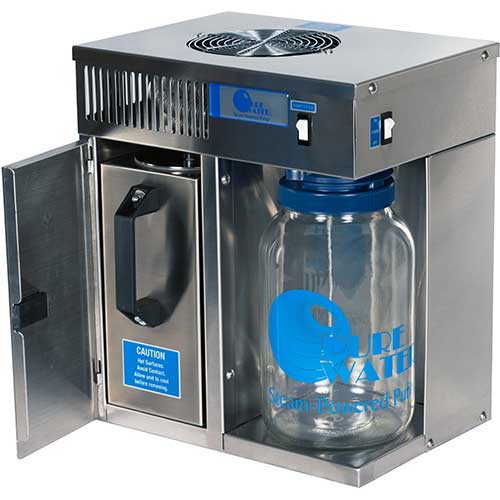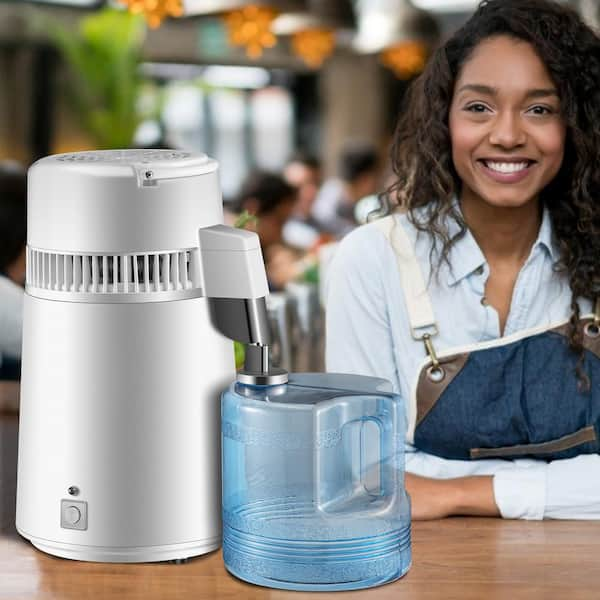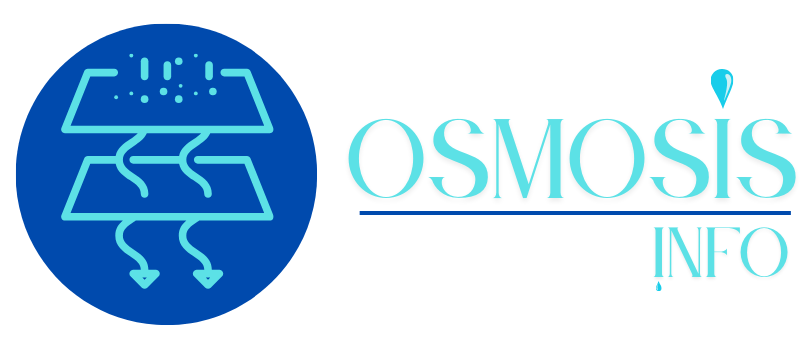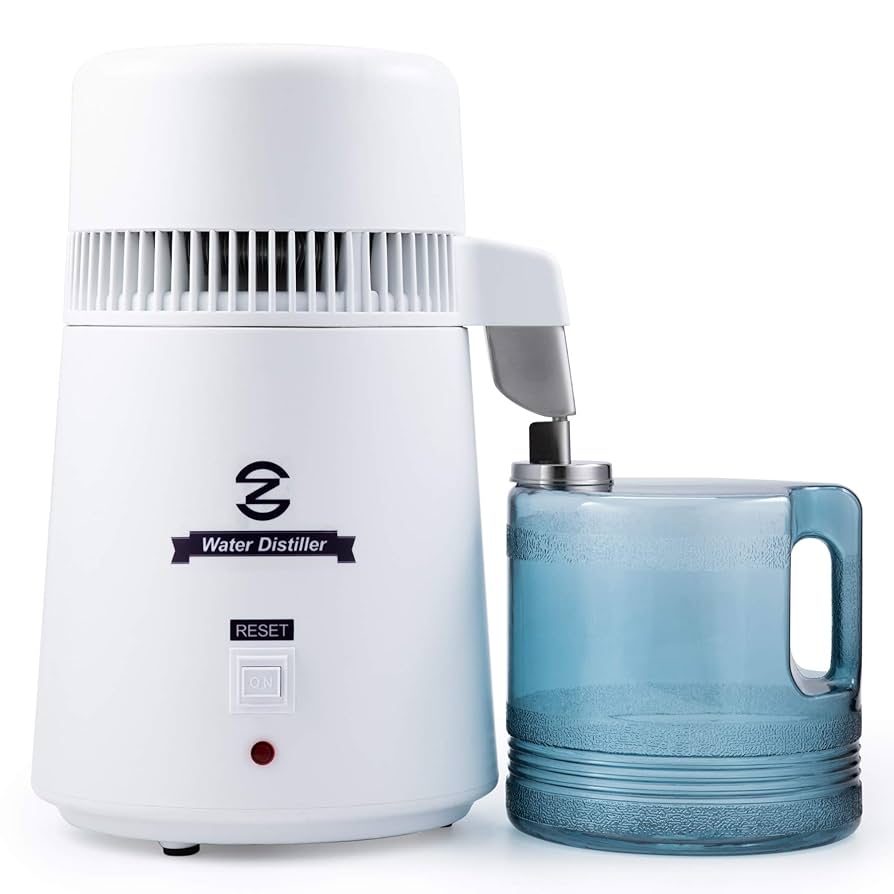Principles And Benefits Of Electric Water Distillation
Electric water distillers operate on a deceptively simple idea: boil water until it vaporizes, then cool that steam back into liquid, leaving nearly every contaminant behind. Inside the unit, a stainless-steel heating chamber warms tap water past its boiling point, forcing molecules to evaporate and drop heavier minerals, metals, and microbes into the bottom reservoir. A coiled condenser—often wrapped in a fan-cooled jacket—transforms the steam back into droplets, which then flow through an activated carbon filter before filling your jug with pristine H₂O[1]. While it sounds almost magical, it’s really just physics and patience working hand in hand.

One of the biggest draws is peace of mind. Independent lab tests show this method eliminates over 99.9% of heavy metals—including lead, mercury, and arsenic—and removes dissolved salts like calcium and magnesium, leaving behind a taste so pure it brings to mind a cool mountain spring[2]. Even stubborn bacteria and viruses can’t hitch a ride on steam molecules, so you get safety without the need for harsh chemicals. I still remember my first sip—crisp, clean, and reassuringly free of that lingering “chlorine” flavor many of us have come to accept as normal.
Unlike under-sink filters or simple pitchers, electric distillers serve as point-of-use purifiers that never rely on chemical additives. Yes, they consume around 600–800 watts during a 4–6-hour cycle, and the chamber requires occasional descaling to sweep away mineral buildup[4]. But modern models mitigate energy waste with insulated chambers and auto-shutoff sensors that stop heating precisely when the last drop evaporates. Many include replaceable carbon cartridges for that final polish, snaring trace volatile organic compounds or odors before water reaches your glass. To integrate this technology seamlessly—you might explore a dedicated distilled water system that manages storage and dispense, ideal for kitchens or home bars.
Unique Features Of Electric Distillers
When shopping for a distiller, you’ll find a surprising array of bells and whistles designed to boost performance and convenience. Some units advertise stainless-steel boiling chambers paired with borosilicate glass condensers—materials chosen specifically to resist corrosion and prevent metallic taste transfer[1]. Others incorporate whisper-quiet fans for faster steam cooling or adjustable thermostats that let you fine-tune output based on your water chemistry.
Safety and automation are front and center. Water-level sensors detect when the tank runs dry, cutting power to avoid overheating, while sealed heating elements stay cool to the touch—no risk of accidental burns. Fancy models even boast self-cleaning cycles: pour in a vinegar solution, hit “clean,” and walk away as mild acid dissolves scale buildup from the walls and heating coil[4]. These features cut maintenance time in half, keeping output consistent without fuss.

Beyond materials and mechanics, design choices can make a real difference. Units with transparent water-level gauges spare you guesswork when topping off. Digital displays track cycle progress or alert you to filter-change intervals. And carbon-post filters—often integrated beneath the collection jug—ensure any trace VOCs or odors that boil near water’s vapor point don’t sneak through[3]. If countertop real estate matters, slim, vertical footprints save room, while larger floor-standing models pump out up to 4 liters per cycle. For a kitchen showcase, check out our roundup of countertop water distillers for home use—there’s truly something for every space and style.
Contaminants Removed: Distillation Vs. Traditional Filtration
The champion of contaminant removal, electric distillation vaporizes almost pure H₂O, leaving behind sediments, minerals, heavy metals, and microbial life. Independent lab analyses affirm that this process strips out over 99.9% of lead, mercury, fluoride, calcium, and even certain pesticides that cling to non-volatile particles[2]. For most households, that means no more worrying whether your filter has reached capacity or if a tap change introduced new contaminants.
Traditional activated carbon filters excel at capturing chlorine, organic chemicals, and odors, but dissolved salts and minerals simply pass through. Sediment filters can trap visible particles but offer no refuge from microscopic heavy metals. Reverse osmosis units come close—removing up to 98% of dissolved solids—but they generate wastewater and still leave certain volatile organics unchecked unless you pair them with a carbon post-filter. Distillers, by contrast, handle both tasks in one continuous cycle, though they require more energy and patience.
One family I know swapped their pitcher filter for a countertop distiller and reported coffee with brighter notes and clearer ice cubes. Their children no longer fuss about “funny” tastes—and parents sleep easy knowing their water is free of common urban pollutants. Curious readers can dive deeper into comparisons of distilled versus filtered water benefits or discover the best home water distillers that balance purity with performance.
Choosing the Perfect Electric Water Distiller
Selecting the ideal distiller often feels like solving a puzzle where capacity, energy draw, and budget must align with your daily water needs. Start by calculating how much distilled water your household consumes for drinking, cooking, coffee brewing, or medical devices. Residential models typically produce 1–4 liters per cycle, while commercial units can deliver upward of 10 liters at once. If you’re pouring multiple batches daily, opt for higher-capacity chambers or dual-chamber designs that allow refill-and-run alternation.
Energy efficiency directly impacts your utility bill. Most countertop units require 800–1,200 watts of power, translating to roughly $0.15–$0.30 per liter, depending on local electricity rates. Look for features like insulated boiling tanks and auto-shutoff thermostats, which trim unnecessary heat loss without compromising water purity. If you have solar panels or green-energy rebates, check compatibility—some high-end distillers even support timed cycles to coincide with peak solar production.
Budget is the final piece of the equation. Entry-level plastic-bodied distillers start near $100, while polished stainless-steel or borosilicate-glass models can surpass $400. Factor in annual maintenance—activated carbon filters cost $15–$30, and descaling supplies run under $10. Compare warranty terms and customer support reputations, as reliable after-sale service can save money over years of use. And if you envision integrating distilled water into your plumbing, consider our comprehensive guide to whole-house and point-of-use distilled water systems for seamless installation.
How to Use an Electric Water Distiller
Begin by filling the stainless-steel boiling chamber with cold tap water up to the marked max fill line. Secure the lid firmly to ensure steam travels only through the condenser path. Flip the power switch, and the heating coil will elevate water temperature until it ebbs into a rolling boil, separating pure vapor from mineral sludges and heavy-metal residues[1]. You’ll often hear a gentle roar as steam rises into the condenser.
Next, watch the steam journey through the coiled condenser tube, where ambient air or cool water jackets chill it back into droplets. The condensed water then passes through an activated carbon filter, which traps any residual volatile organic compounds or odors boiling close to water’s own vapor temperature[3]. Once dripping slows to a trickle, the unit often clicks off automatically to signal cycle completion.
Finally, carefully pour the freshly distilled water into a clean glass or BPA-free jug, avoiding any contact with the mineral-rich sediment left in the chamber. I still smile at that quiet hiss when pouring—it’s a small ritual that means the water you’re drinking has shed almost every impurity[2]. For more insights on specific models and practical tips, refer to our dedicated best home water distiller guide.
Maintenance Tips For Your Electric Water Distiller
Regular maintenance ensures your distiller keeps humming and delivers flawless water day after day. After each cycle, unplug the unit, let it cool, then wipe out the boiling chamber with a soft cloth to remove loose scale. Skipping this step risks mineral accumulation that can impact both heating efficiency and water output[1].
Every 20–30 cycles, run a cleaning cycle by mixing equal parts white vinegar and water in the chamber. The mild acidity dissolves calcium and magnesium deposits without harming stainless steel or glass components[4]. After the vinegar run, flush the chamber twice with fresh water to rinse out any leftover acidity. A clean chamber can restore up to 15% of your distiller’s original energy efficiency[2].

Replace the activated carbon post-filter every 2–3 months to maintain water taste and odor control. These cartridges cost just a few dollars and can cut lingering VOCs by over 90%[3]. Finally, inspect hoses, seals, and cooling fans semi-annually—dust buildup or loose fittings reduce condensation speed and invite microbial growth. A gentle wipe or dust-off will keep airflow unobstructed and ensure the unit’s lifespan extends well beyond its warranty.
Beyond Drinking: Unconventional Home Uses For Distilled Water
Distilled water’s purity makes it a secret weapon for household chores and small-appliance care. In steam irons and garment steamers, it prevents chalky scale buildup that clogs nozzles and dims performance[1]. Swap out tap water the next time you freshen up couches or carpets with a steam cleaner—floors sparkle without hard-water streaks.
Houseplants and aquariums thrive on distilled water because it’s free from chlorine, chloramines, and dissolved solids that can stress fragile roots or fish gills[2]. Cacti, ferns, and orchids especially perk up when you ditch mineral-rich tap water. Likewise, filling humidifiers and CPAP machines with distilled water cuts down on biofilm and mineral crusts, promoting cleaner mist and healthier breathing[3].
Even under the hood, distilled water proves invaluable: topping off lead-acid car batteries with pure water prevents corrosion and maintains optimal charge cycles. No stray minerals will foul battery plates, meaning longer life and fewer maintenance headaches[4]. So whether you’re ironing a crisp shirt or balancing aquarium pH, distilled water quietly elevates every task.
Real Stories from Distilled Water Users
Emily, 34, swapped her café-style espresso water for home-distilled H₂O and was amazed by the difference. “My lattes taste sweeter, brighter—like I’m rediscovering coffee,” she says, noting that removing minerals and metals sharpens natural flavor notes[1]. Now she refills her lightweight glass carafe three times each morning without missing her commute.
Marcus, 27, suffered from dry, irritated skin until he began hydrating exclusively with distilled water and ran his humidifier on the same supply. Within days, redness diminished and his dermatologist confirmed improved hydration levels. “I never expected water quality to impact my complexion so dramatically,” he laughs, crediting a cleaner source free of chlorine and fluoride[3].
Sophie, 45, remembers battling scale in her kettle until she invested in a countertop distiller. Now her appliances last longer, from coffee makers to steam mops, all thanks to mineral-free water that never leaves crusty rings[2]. “It’s saved me time, money, and so much elbow grease,” she smiles, adding she’s spoiled by the daily ritual of pure water.
Ravi, 52, reports that his family’s energy levels rose after ditching bottled water in favor of home-distilled supply. They now convene around the kitchen jug each evening, toasting to simple pleasures. “We never thought water could bring us closer,” he confides, urging friends to explore distillation’s benefits[5].
Summary Of Electric Water Distillers
Electric water distillers harness the power of steam to deliver water that’s virtually free of heavy metals, minerals, and microbes. Tap water vaporizes in a stainless-steel chamber, then condenses through a coiled condenser, shedding sediments and salts while an activated carbon post-filter catches lingering volatile organics[1][2].
This method removes over 99.9% of contaminants, from lead and arsenic to fluoride and bacteria, outperforming many conventional filters and even challenging reverse-osmosis units in sheer purity, albeit with higher energy use and longer cycle times[3][5]. For those seeking a ready-to-use solution, exploring the best home water distiller guide can point you to models that balance capacity, efficiency, and ease of cleaning.
Whether you’re brewing the perfect cup, safeguarding appliances, or simply craving peace of mind with every sip, an electric water distiller offers a timeless, chemical-free path to pure water. A simple fill-and-flip routine can transform your daily hydration into a ritual of clarity and taste.
“`html
Complete Top Picks Comparison – 12 Products
| Product | Source | Price | Rating | Image | Buy |
|---|---|---|---|---|---|
| Essential Oil Distillation Kit, 1000ML Essential Oil Steam Distillation Apparatus with 1000W Electric Heater, Home Lab Glass Distillation Set | Amazon | $94.21 | ☆☆☆☆☆ |  | Buy Now |
| Megahome Countertop Water Distiller Stainless, Glass Collection | Amazon | $299.00 | ★★★★☆ |  | Buy Now |
| VEVOR Water Distiller, 1.1 Gal Distilled Water Machine, 750W Pure Water Distilling w/BPA Free Plastic Container, for Home, White | Amazon | $65.67 | ★★★★☆ |  | Buy Now |
| BKLES Electric Portable Water Filter – 0.01 Micron 5-Stage Water Purifier Survival with Emergency Lighting | Amazon | $51.96 | ★★★★☆ |  | Buy Now |
| VEVOR Water Distiller, 304 Stainless Steel Countertop Water Stiller, 0.3Gal/H, 0-99H Timing Dual Temp Display | Amazon | $81.99 | ★★★★☆ |  | Buy Now |
| VEVOR Water Distiller, 4L 1.05 Gallon Pure Water Purifier Filter for Home Countertop, Stainless Steel Interior, Black | Amazon | $65.33 | ★★★★☆ |  | Buy Now |
| Klysiora 4L Distilled Water Dispenser Household Stainless Steel Distilled Water Purifier Countertop Distilled Water Maker | Amazon | $48.88 | ★★★★★ |  | Buy Now |
| CO-Z 4L Brushed Stainless Steel Countertop Distiller Machine, Home Distilled Water Maker with Glass Pot | Amazon | $119.99 | ★★★★☆ |  | Buy Now |
| ROVSUN 【Upgraded】 1.1 Gallon/4L Water Distiller Countertop, BPA-Free Container & Stainless Steel Interior | Amazon | $75.99 | ★★★★☆ |  | Buy Now |
| DC HOUSE 1 Gallon Water Distiller Machine, 750W 4L Pure Distilled Water Maker Machine for Home Countertop | Amazon | $99.99 | ★★★★☆ |  | Buy Now |
| Electric Bike Adults 40Miles 23MPH Commuting Electric Mountain Bike 468Wh Lithium Battery, 7-Speed | AliExpress | $404.91 | ★★★★★ |  | Buy Now |
| HILAND Electric Bike for Adults, 26 inch Electric Mountain Bicycle with Removable Battery, 500W 36V Motor | AliExpress | $386.93 | ★★★★★ |  | Buy Now |
“`

